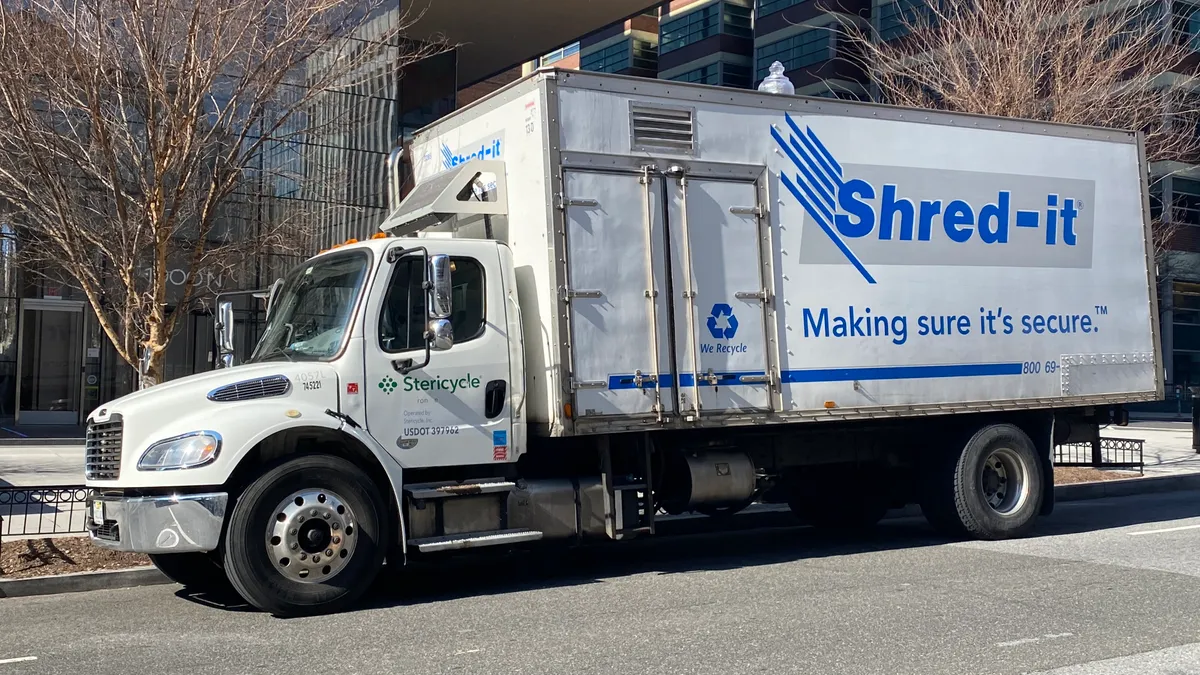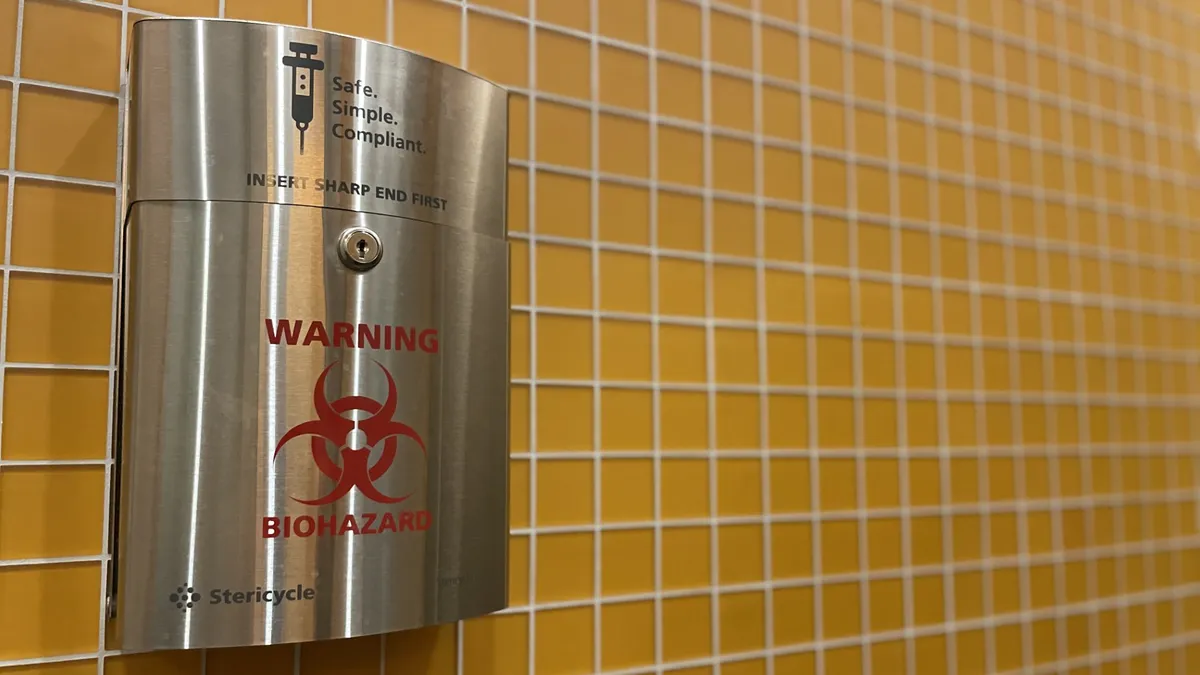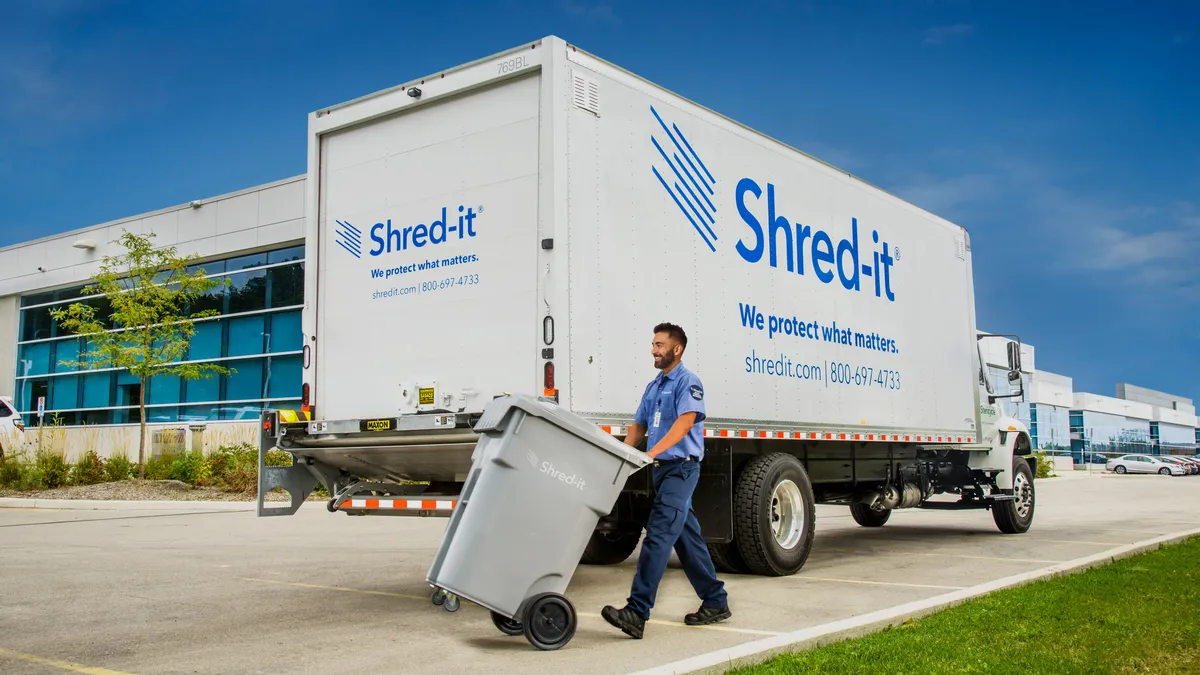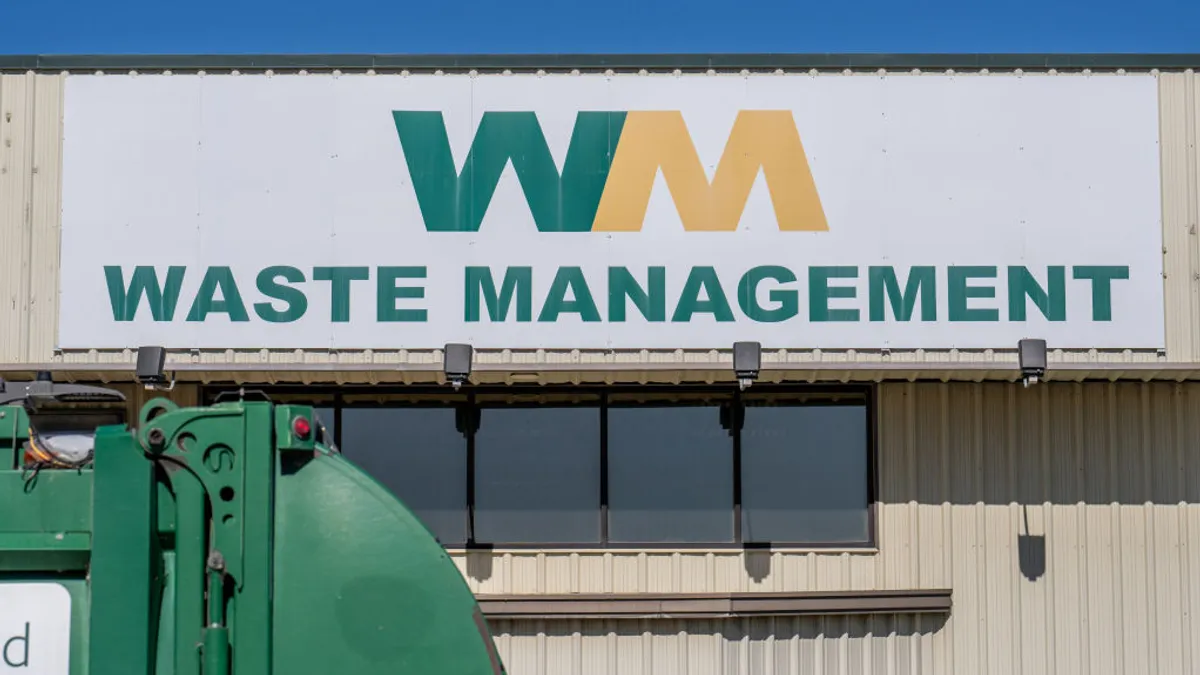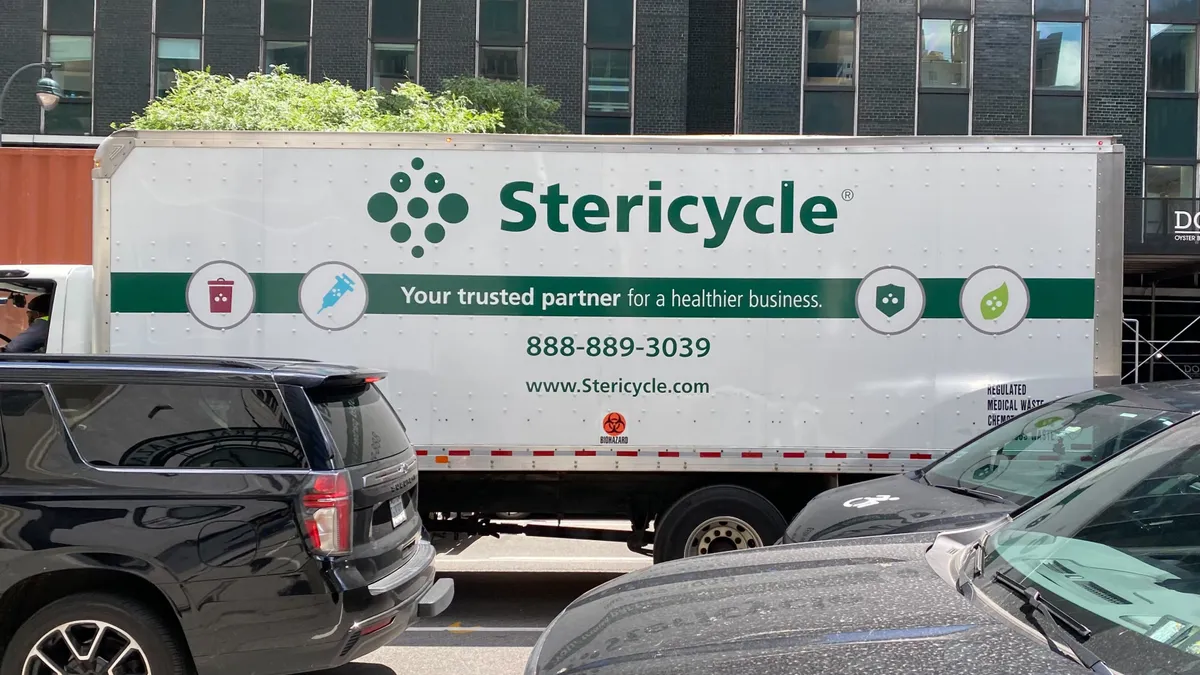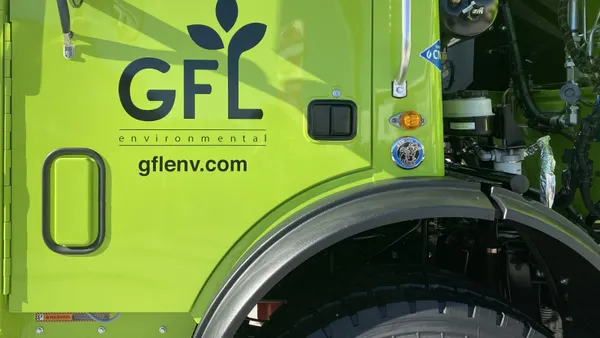Dive Brief:
- Urbaser, an environmental services company based in Madrid, will acquire Stericycle’s Spanish and Portuguese subsidiaries. Financial terms were not disclosed.
- Stericycle’s biomedical waste services in that region will help Urbaser to expand its scope beyond industrial waste collection and treatment, the company said in a news release. The acquisition is expected to be completed in the “coming months,” pending customary conditions.
- It’s unclear how the acquisition will affect WM’s acquisition of Stericycle, which is expected to be completed “as early as” Q4. Stericycle declined to comment on the Urbaser deal, and WM did not respond to a request for comment.
Dive Insight:
The deal comes as the waste industry speculates over how Stericycle’s overseas assets will fare after WM acquires the company for $7.2 billion.
The majority of Stericycle’s business is in the U.S. and Canada, but it also has operations throughout Europe that account for about 15% of its revenue. In addition to operations in Spain and Portugal, it also operates in France, Germany, the U.K., Belgium, Luxembourg and the Netherlands.
The deal recently received antitrust approval from authorities in Spain and Portugal, according to recent filings. The deal also received foreign direct investment approval from Spain since the last filing, CTFN reported. The publication speculated that the Urbaser deal was “likely done to alleviate any issues around FDI in Spain.”
Stericycle handled about 32,000 tons of medical waste in Spain and Portugal in 2023, Urbaser said. It expects the company’s expertise will help Urbaser to grow such services for hospitals, clinics and laboratories in coming years. Stericycle has about 1,200 employees in those two countries. Urbaser recently sold its UK business to FCC Servicios Medio Ambiente, citing its decision to increase “focus and investment in strategic countries.”
WM executives have not spoken directly about plans for Stericycle’s other European assets or expressed interest in expanding throughout Europe. However, during the Stifel Cross Sector Insight Conference in June, WM executives said they will monitor the markets for possible opportunities.
Rafael Carrasco, WM’s senior vice president of enterprise strategy, said Stericycle’s European subsidiaries were “not core to the strategic significance of the acquisition,” but added that those assets give WM “a nice conservative perch from which to look at the Western European market and see what that might yield in the future.”
Stericycle’s presence in European markets could also represent an opportunity for WM to learn from that region’s circular economy strategies, which “are in some respects ahead of what we’ve done in North America,” said Devina Rankin, WM’s CFO, during the conference. During WM’s Q2 earnings call in July, Rankin specifically noted the company was keeping an eye on the U.K. “with respect to traction that they get from a sustainability and recycling perspective.”
“I think it could be a nice synergy that we're not even considering in terms of what brought value for the Stericycle transaction,” she added.
WM’s Stericycle deal will mark the company’s return to focusing on the medical waste sector after previously having a smaller presence in the industry in the mid-2000s.
WM recently sold its 15% stake in Trilogy MedWaste, a biomedical waste business, back to private equity firm KKR, CTFN reported. The sale fulfilled a contractual obligation after re-entering the medical-waste industry, CTFN reported.
WM received a supplementary information request from the Canadian Competition Bureau in late September. It received clearance from U.S. antitrust regulators in August.



